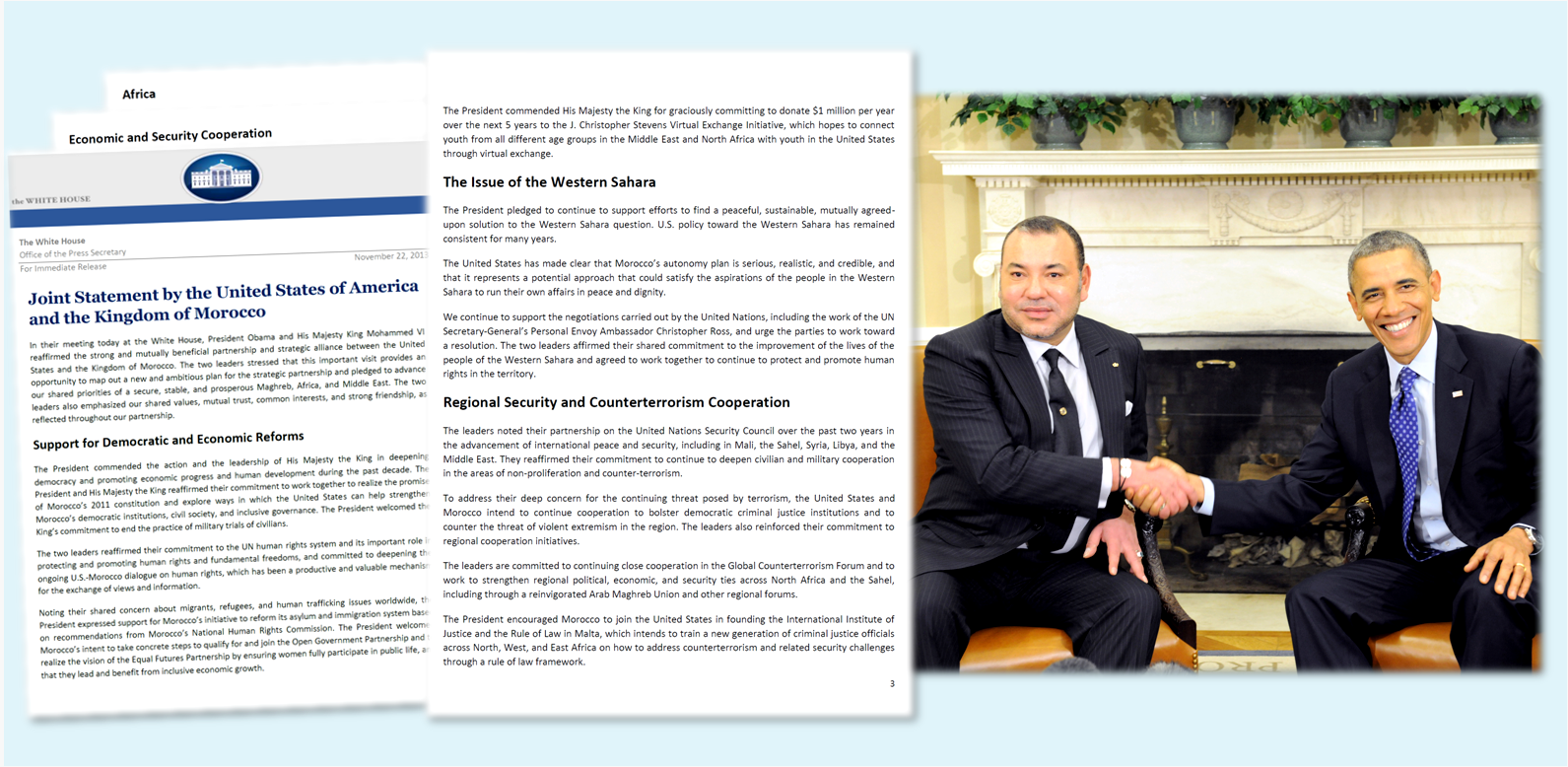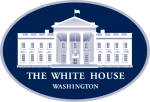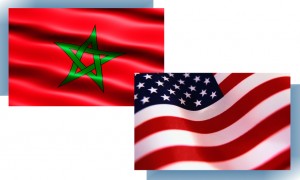Updated
Let There Be No Doubt: US Supports Autonomy Under Moroccan Sovereignty in Western Sahara – Robert M. Holley

In his meeting with King Mohammed VI, President Obama reaffirmed US support for a political compromise of autonomy under Moroccan sovereignty as the only realistic solution to resolve the long-standing Western Sahara conflict.
.
* US-Morocco Joint Statement issued following the meeting between King Mohammed VI and President Obama *
.

Robert M. Holley, Senior Policy Adviser, MACP
Robert M. Holley, MACP
December 13, 2013
The Joint Statement issued by the United States and the Kingdom of Morocco after King Mohammed VI’s November 22 meeting with President Obama outlined a wealth of common goals and causes that will strengthen the US-Morocco bilateral relationship. While much of this was spelled out in some detail, there was one element that I think deserves special attention – and additional elaboration. The statement stressed that “U.S. policy toward the Western Sahara has remained consistent for many years,” and went on to say that the US “has made clear that Morocco’s autonomy plan is serious, realistic, and credible.”
This is something we have rightfully heard many times over the past few years from US Secretaries of State. But it was the first time Obama himself made such a statement. You may recall that in 2009 then-Secretary of State Hillary Clinton noted, “the Obama Administration has not changed the policy of the United States Government which originated in the Clinton Administration. It was ratified in the Bush Administration and it continues to be United States policy under the Obama Administration.”
 But what exactly is the policy and how and why did it develop? I was fortunate enough to be a part of the team that helped formulate the policy in 1999. As I wrote in a paper for MIT International Review, by late 1998 it was clear that the referendum option had failed and the international community wanted a more effective method to address the Western Sahara problem that would also help diminish the risks of a broader regional war. Clearly, some kind of political compromise between the parties was necessary. Morocco would need to abandon its aim of fully integrating the Western Sahara, and, similarly, the Polisario Front and its Algerian backers would have to abandon their efforts to separate the region from Morocco, by force of arms or other means, to achieve an independent state.
But what exactly is the policy and how and why did it develop? I was fortunate enough to be a part of the team that helped formulate the policy in 1999. As I wrote in a paper for MIT International Review, by late 1998 it was clear that the referendum option had failed and the international community wanted a more effective method to address the Western Sahara problem that would also help diminish the risks of a broader regional war. Clearly, some kind of political compromise between the parties was necessary. Morocco would need to abandon its aim of fully integrating the Western Sahara, and, similarly, the Polisario Front and its Algerian backers would have to abandon their efforts to separate the region from Morocco, by force of arms or other means, to achieve an independent state.
The American foreign policy community recognized that either of these winner-takes-all approaches would only lead to further regional instability, conflict, and possibly war—something US policy makers were intent on avoiding. Instead, the US decided that a basic trade-off was required—a political compromise that satisfied basic requirements for both parties and still respected the key principles of international law for resolving such conflicts.
Since 1999, Presidents Clinton, Bush, and Obama have supported a compromise formula based on autonomy for the Western Sahara under Moroccan sovereignty, with the details to be negotiated between Morocco, the Polisario Front, and their Algerian backers. It was a policy born of pragmatism and really the only policy that makes sense in an increasingly unstable part of the world.
So even though I had heard it before – and I knew it to be the case – I was glad to see Obama reiterate the US commitment to the policy in the Joint Statement. What is needed now is for the Obama Administration to take concrete steps to support and advance this compromise policy. Some of the most useful actions would be to:
- Remove the unofficial prohibition on visits by senior US officials to the Western Sahara so that they can visit and have a better understanding of the realities on the ground;
- Expand US foreign assistance programs in Morocco targeting social, economic, and civil society development to the Western Sahara to enhance US support for democracy and development; and
- Encourage US private sector development in the region to create the conditions for a successful autonomy arrangement.
A political compromise of autonomy for the Sahara remains the only realistic solution to resolve this long-standing conflict. President Obama recognizes this, as did his predecessors. It is now time for the US government to move forward to make it a reality.
Robert M. Holley is Senior Policy Advisor for the Moroccan American Center for Policy, MACP